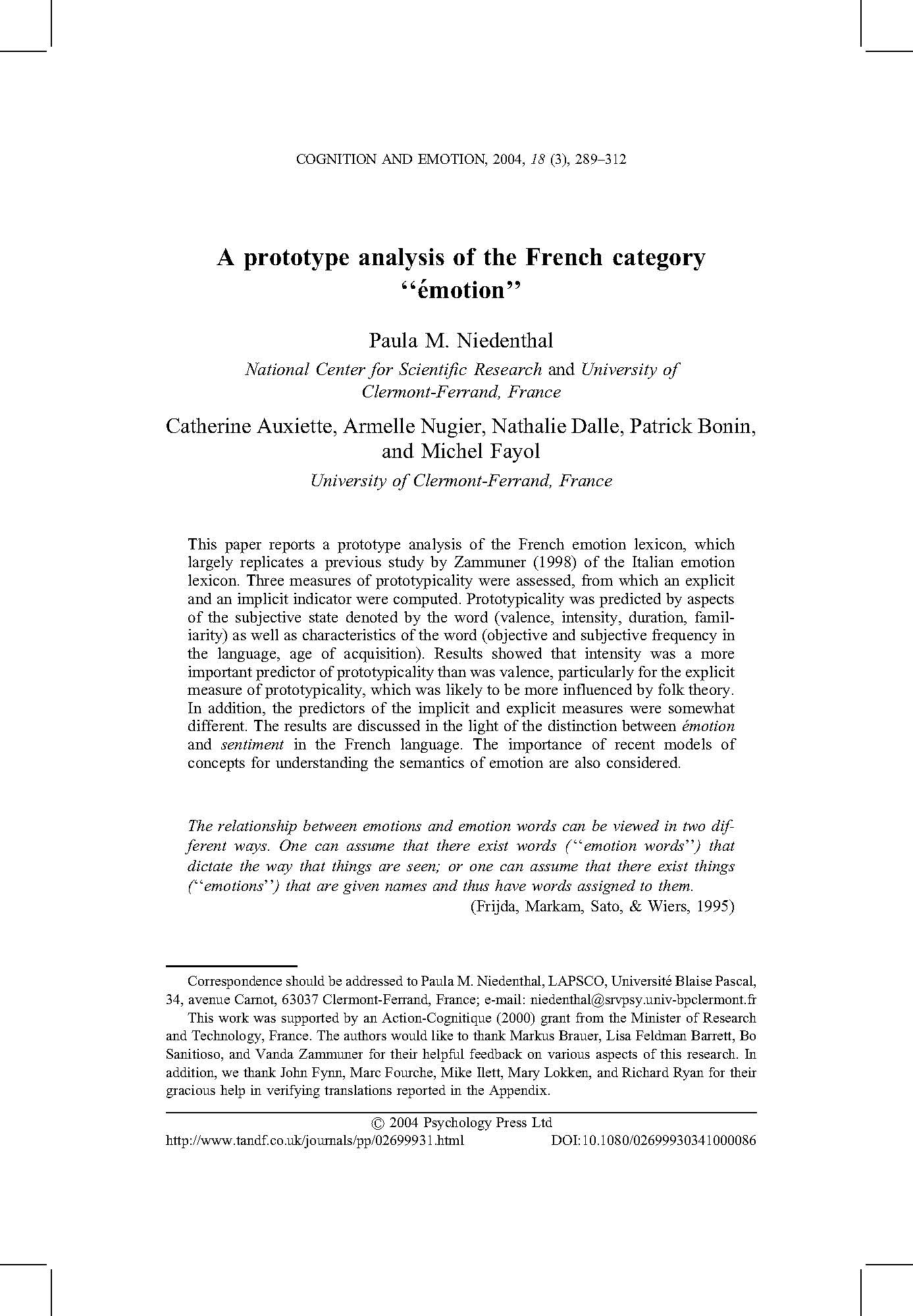This paper reports a prototype analysis of the French emotion lexicon, which largely replicates a previous study by Zammuner (1998) of the Italian emotion lexicon. Three measures of prototypicality were assessed, from which an explicit and an implicit indicator were computed. Prototypicality was predicted by aspects of the subjective state denoted by the word (valence, intensity, duration, familiarity) as well as characteristics of the word (objective and subjective frequency in the language, age of acquisition). Results showed that intensity was a more important predictor of prototypicality than was valence, particularly for the explicit measure of prototypicality, which was likely to be more influenced by folk theory. In addition, the predictors of the implicit and explicit measures were somewhat different. The results are discussed in the light of the distinction between emotion and sentiment in the French language. The importance of recent models of & concepts for understanding the semantics of emotion are also considered.
A prototype analysis of the French category “emotion”
